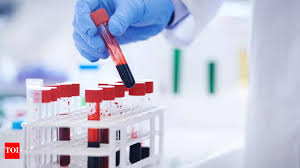A Rare Blood Type Discovery in Guadeloupe
One of the most amazing discoveries in medicine was a French woman whose blood has been discovered to be of a rare type blood, Gwada (negative). This outstanding discovery carries serious implications to the medical industrial on transfusion and emphasizes the intricacy of human blood.
This particular lady, whose name is not known, was first registered having this rare blood type in 2011 in one of the medical tests done before undergoing surgery. Her blood was studied at the time when some abnormal antibodies were identified. Not much research was carried out however, owing to lack of knowledge as to the blood type.
The Discovery Process
Now, fast-forward to the year 2019, scientists started to delve at the DNA level of the woman by examining her blood. This included examination of the genetic markers that define blood type and what particular features caused her blood to be special. Under the coordination of Thierry Peyrard, the director of French Blood Establishment (EFS), research group left no stone unturned in trying to know how it worked with this rare type of blood.
Confirmation by the International Society of Blood Transfusion
In June 2025, the uniqueness of blood type by the woman has been confirmed by the International Society of Blood Transfusion (ISBT) which is located at the convention in Milan, Italy. This validation is a great breakthrough in the transfusion science domain because it requires more research and testing in order to know the dynamics of human blood.
Implications of the Discovery
The identification of this rare type of blood can have major consequences not only to the woman but also to the medical fraternity. The world has only one individual with this type of blood so, she cannot give her blood to other people and her blood also cannot be transfused with other humans. This underlines the significance of likeable transfusions of blood and the need of testing and matching.
Expert Insights
Thierry Peyrard, a director of EFS told media outlets, that the woman is in her 60s which means she was first diagnosed to have this rare blood type when she was 54 years old. He said that out of the world, there is no other person who has this particular blood type and it has been identified to belong to the 48th blood group system, which is Nicknamed PIG7. Peyrard has emphasized this discovery and letting us know that this discovery implies the importance of future research and the complexity of human blood that cannot be ascertained easily.
The Importance of Blood Donation and Research
This rare type of blood reflects the essence of blood donating and researching. Blood transfusions form an important part of the medical practice and to maintain the safe and efficient blood transfusions, it is important to comprehend the complex nature of human blood. The unusual case of the woman with the rare blood type reminds us how research and testing have to be continued so as to gain more knowledge about human blood and come out with new methods of treatment and new therapies.
This finding and the discovery of this rare blood type underline the significance of blood donating and research. Blood transfusion is a vital part of healthcare and comprehending the complexity of blood of a human being is the key to safe and efficient transfusions. The uncommon blood type of the woman should be seen as an indication of why we still need to research and test more to enhance our knowledge further about human blood and devise new methods and techniques of treatment and therapy.
Related:Rwanda Revolutionises Blood Donation with Digital Booking System

















0 Comments
At The Hot News Press, Your idea matters to us. Keep in touch.